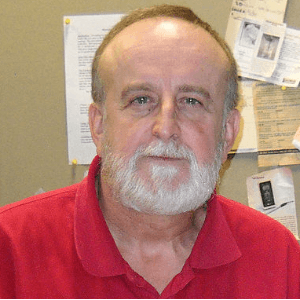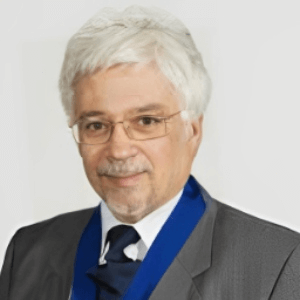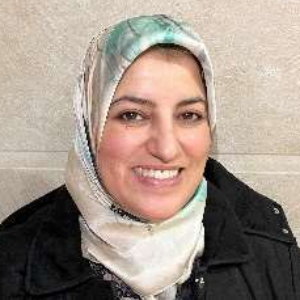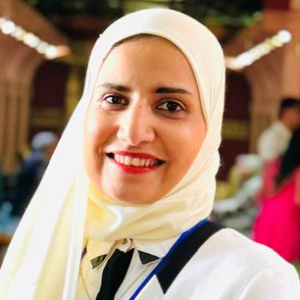Ken Ware, NeuroPhysics Therapy Institute and Research Centre, Australia
In accounts of the development and progression of psychophysical disorders such as Hereditary Spastic Paraplegia (HSP) and Facioscapulohumeral Muscular Dystrophy (FSHD), the role of beliefs, perceptions, and behavioural patterns has often been overlooked in favour of a geneticall [....] » Read More



![Narrative medicine: A communication therapy for the communication disorder of Functional Seizures (FS) [also known as Psychogenic Non-Epileptic Seizures (PNES)] Speaker at Neurology Conferences - Robert B Slocum](https://neurologycongress.com/uploads/speakers/robert-b-slocum-8630.jpg)














Title : Novel important cellular responses, signaling mechanisms and therapeutic options in vascular dementia
Yong Xiao Wang, Albany Medical College, United States
Vascular contributions to cognitive impairment and dementia (VCID) have high morbidity and mortality, and diabetes is a leading factor for VCID. The signaling mechanisms for diabetes-induced VCID are largely unknown, and the current treatments for VCID are neither very specific n [....] » Read More
Title : How have we eliminated infection: From the bone to brain ?
Thomas J Webster, Interstellar Therapeutics, United States
Implant infection is rising with the U.S. Centers for Disease Control predicting one person every three seconds will die from a bacteria infection by 2050. Nanomedicine is the use of nanomaterials to improve disease prevention, detection, and treatment which has resulted in hundr [....] » Read More
Title : A case of vile vindictive primary CNS vasculitis
George Diaz, Memorial Healthcare Systems, United States
Introduction/Objective: Primary Angiitis of the Central Nervous System (PACNS) is rare and causes inflammation of the small and medium vessels of the brain, leptomeninges and spinal cord. We present a case of PACNS, demonstrate the diagnostic challenges, and appreciate outco [....] » Read More
Title : An audit on the assessment and management of osteoporosis in a Parkinson’s and related diseases clinic in Australia
Nethmi Nuwanji Amarasekera, Imperial College London, United Kingdom
Osteoporosis is characterised by low bone mineral density and is associated with minimal trauma fractures. Patients with Parkinson’s disease (PD) and atypical parkinsonian syndromes are at increased risk of falls and should be actively screened and treated for osteoporosis. [....] » Read More
Title : Clinical efficacy analysis of implantable VNS stimulation rehabilitation therapy for the patients with hemiplegia after ischemic stroke
Dawei Zang, Capital Medical University, China
Purpose: Currently there are no effective rehabilitation therapies for the upper limb movement disorders of the patients after ischemic stroke in clinical; it is difficult for these patients to return to society and work. Implantable VNS (Vagus Nerve Stimulation?VNS) is widely us [....] » Read More
Title : New trends in migraine management: Transcending the traditional divide between acute and preventive treatments
Jiying Zhou, The First Affiliated Hospital of Chongqing Medical University, China
Migraine treatment is categorized into acute and preventive approaches. The primary goal of acute treatment is to alleviate headache and associated symptoms rapidly while minimizing adverse effects, allowing patients to return to normal functioning. Preventive treatment focuses o [....] » Read More
Title : STING is significantly increased in high-grade glioma with high risk of recurrence
Qingyuan Yang, Shanghai Jiao Tong University School of Medicine, China
To our knowledge, the potential relationships among the frequently mutated genes, well-known homologous recombination repair (HRR) proteins, and immune proteins in glioma from a clinical perspective have not been explored. Here, a total of 126 surgical tissues from patients initi [....] » Read More
Title : Aspartame-induced cognitive dysfunction: Unveiling role of microglia-mediated neuroinflammation and molecular
Waseem Dar, Shiv Nadar University, India
Aspartame, an artificial sweetener, is consumed by millions of people globally. There are multiple reports of aspartame and its metabolites affecting cognitive functions in animal models and humans, which include learning problems, headaches, seizures, migraines, irritable moods, [....] » Read More
Title : Geriatric care for individuals with neurological & brain disorders in carehomes /assisted living facilities
Akankunda Veronicah Karuhanga, Golden Age Elderly Homes Kampala, Uganda
Care homes play a crucial role in providing specialized care and support to individuals with neurological conditions such as Alzheimer's disease, Parkinson's disease, and stroke survivors. These facilities offer a safe and structured environment, tailored to meet the uniq [....] » Read More
Title : Social engagement and cognitive functions: An association between religious attendance and cognitive functions in old age
Henry Chahwanda, Individual, United Kingdom
The purpose of this study is to investigate the association between religious attendance as one of the main forms of social engagement and cognitive functions in old age. The risk of cognitive impairments, a forerunner dementia and Alzheimer which lead to death and disability in [....] » Read More
Title : The impact of screen exposure on attention capacities in Moroccan schoolchildren: A neurocognitive approach
Zakaria Abidli, International University of Casablanca, Morocco
In all cognitive tasks, attention is crucial for processing and learning information. This study aims to examine the harmful impact of growing screen use among children in Morocco on their attentional capacities and educational outcomes. It provides a neurocognitive perspective t [....] » Read More
Title : Revolutionizing alzheimer's early detection: bridging gaps with multi-modal imaging, AI innovations, and ethical insights
Moufiq Abdulrasoul Hasan, Abdullah Thafer Hospital, Libyan Arab Jamahiriya
Background: Early detection of Alzheimer's disease (AD) is crucial for timely intervention and improved patient outcomes. Despite advancements in neuroimaging and AI, significant gaps remain in the early diagnosis of AD. Aims: This session aims to explore the integration o [....] » Read More
Title : A case of AQP4-MOG double-positive neuromyelitis optica spectrum disorder
Sarah Butler, Monash University, Australia
Neuromyelitis optica spectrum disorder (NMOSD) is an immune-mediated disorder of the central nervous system (CNS) characterized by frequent involvement of the optic nerves and spinal cord. Autoantibodies against aquaporin-4 channels on astrocytes (Anti-AQP4) are the hallmark of t [....] » Read More
Title : Evaluating factor levels of fibrinogen, D-Dimer, and hs-CRP in serum or plasma of patients with ischemic or hemorrhagic stoke
Huiqing Hou, Capital Medical University, China
Purpose: Elevated levels of fibrinogen, D-Dimer, and High-sensitivity C-reactive Protein (hs-CRP) have been observed previously in the serum or plasma of patients with stroke, but the associations of these inflammatory cytokines with cognitive impairment after stroke are still [....] » Read More
Title : Interplay between chronic stress and multiple sclerosis: Mechanisms and therapeutic approaches
Shreya R Kethiri, Meenakshi Medical College Hospital and research Institute, India
Multiple Sclerosis (MS) is a chronic, immune-mediated neurodegenerative disorder characterized by inflammation and demyelination of the central nervous system. This literature review evaluates the intricate relationship between chronic stress and MS, particularly its role in th [....] » Read More
Title : The use of cephalexin to inhibit alpha-synuclein aggregation: A new paradigm in parkinson's disease
Divya Jayam, The Wheatley School, United States
Introduction: Parkinson’s Disease (PD) is characterized by the degeneration of dopaminergic neurons due to the aggregation of a protein named α-Synuclein in the substantia nigra region of the brain. Current therapies for PD do not address this pathology. This paper pr [....] » Read More
Title : “No kicking in the body bag”: Determination of brain death with the aid of nuclear medicine scintigraphy
Waleed Bashir, Inspira Health Network, United States
Background: The gold standard of ancillary imaging in determining brain death is Digital Subtraction Angiography (DSA) of the four cerebral vessels, which boasts a near 100% sensitivity and specificity. However, its use is limited due to its time-intensive nature, need for transf [....] » Read More